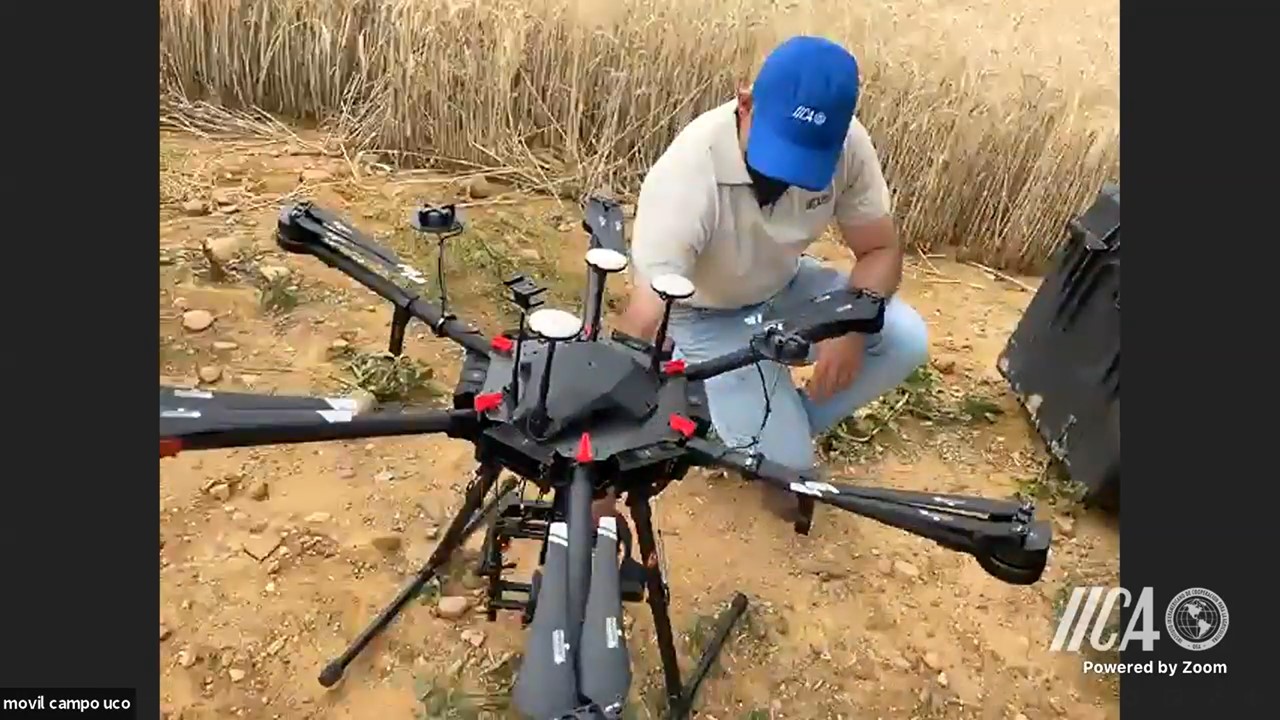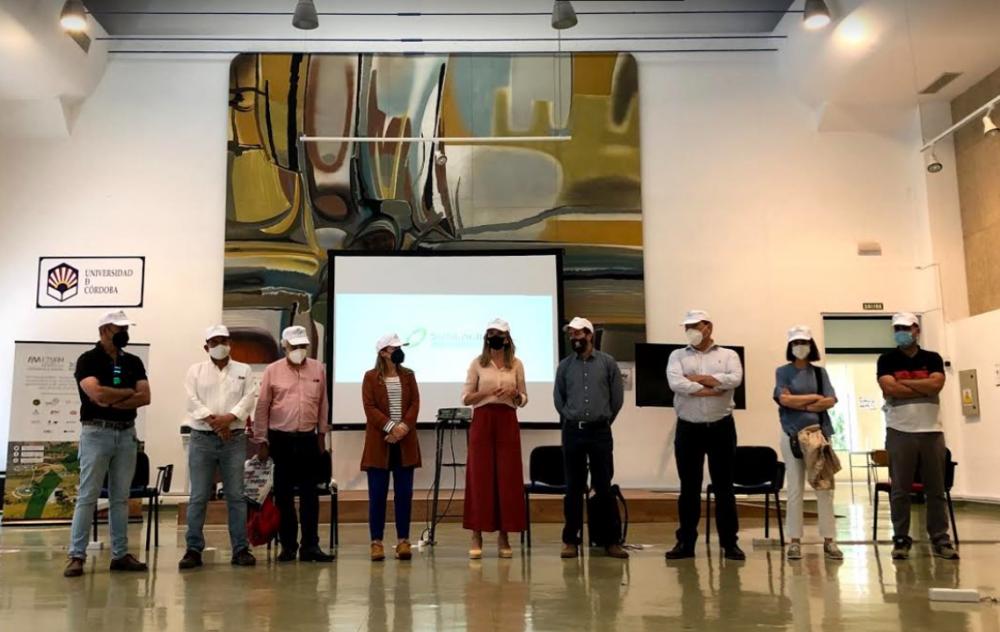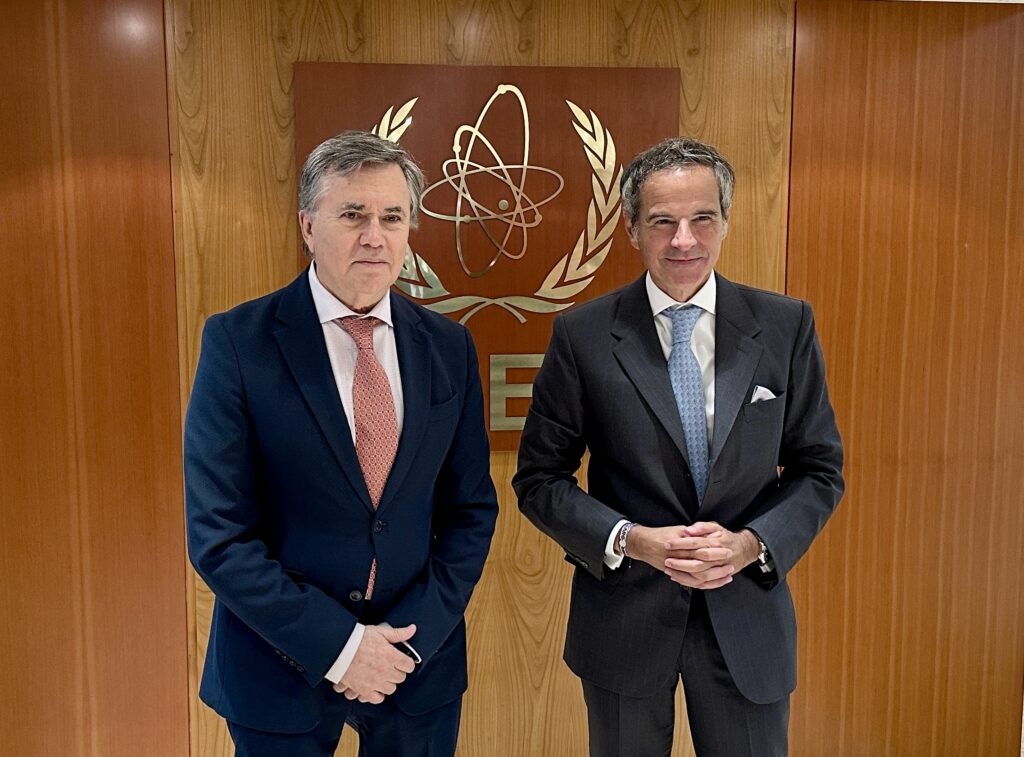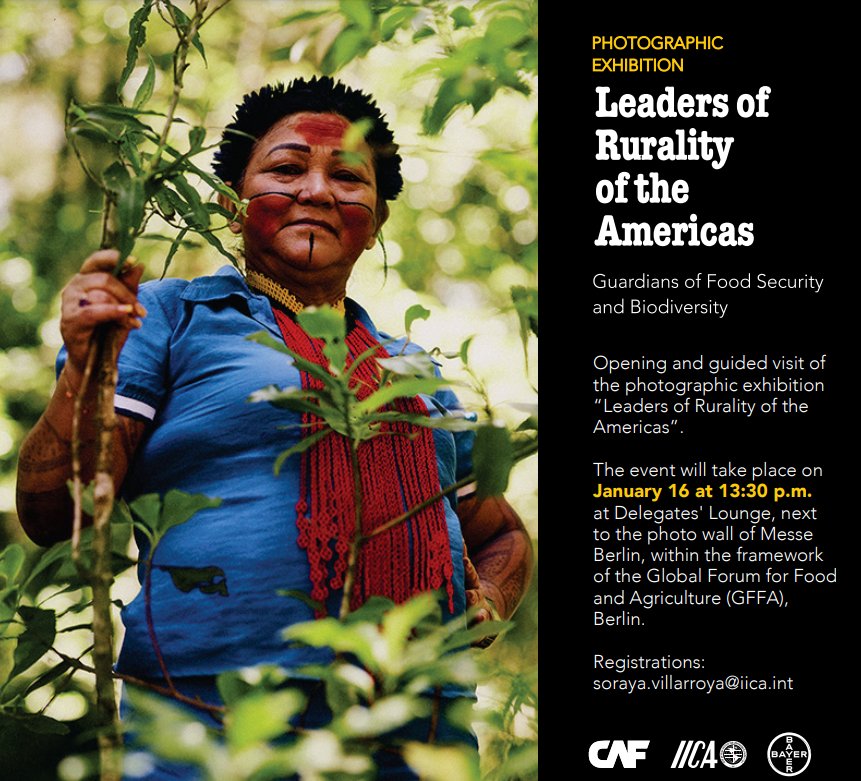Ambas instituciones presentaron un programa de posgrado que se habilitó también a estudiantes de América Latina y el Caribe y que busca capacitar profesionales que apoyen e impulsen la digitalización en el agro y la ruralidad.

San José, 1° de junio, 2021 (IICA). La Universidad de Córdoba (España) y el Instituto Interamericano de Cooperación para la Agricultura (IICA) presentaron la maestría en Transformación Digital del sector agroalimentario y forestal, la cual formará -gracias a una alianza entre ambas entidades- a profesionales de América Latina y el Caribe (ALC) que impulsen la digitalización agrícola en la región, fundamental para el despunte de un sector agropecuario más competitivo, eficiente, inclusivo y sostenible.
Los pormenores del posgrado de la Escuela Técnica Superior de Ingeniería Agronómica y de Montes (ETSIAM) de la Universidad de Córdoba, denominado Máster Digital Agri, se compartieron en una Jornada virtual de Aulas Abiertas con más de 80 participantes, en la que se anunció la disponibilidad de cinco plazas para estudiantes de ALC.
El evento fue encabezado por la directora de la ETSIAM, Rosa Gallardo, y el Director General del IICA, Manuel Otero, quienes enfatizaron en el rol estratégico y vital de esta alianza para generar pensamiento crítico en los jóvenes profesionales, el cual debe ser aprovechado para cumplir con las exigencias que demanda una agricultura inteligente e innovadora.
“Nuestra maestría se abre a estudiantes de ALC y esto sin duda nos enriquecerá a todos y nos ayudará a dar pasos juntos hacia la transformación digital, una transformación que ya es una realidad en parte del sector agrario, pero que llegar a todo es el gran reto que tenemos, reto en el que la tecnología no es el fin en sí mismo, sino el medio para ayudar a los agricultores a tomar mejores decisiones y mejorar su realidad y calidad de vida, así como para ayudar a las explotaciones agrarias, la agroindustria y a todos los actores del medio rural”, comentó Gallardo.
Otero, en tanto, indicó que poniendo “énfasis en los nuevos sistemas agroalimentarios que se requieren, más sostenibles y responsables con el ambiente, los temas de agricultura digital adquieren una enorme importancia”. Reafirmó el compromiso del Instituto para impulsar todas las iniciativas en esa dirección, para lo que son necesarias las alianzas y consorcios, como lo demandan las actuales estrategias de cooperación técnica del IICA.
“Tenemos un futuro enorme que es preciso construir, en algunos casos redireccionar y siempre apuntando a la agricultura inteligente 4.0, en donde nos parece que la agricultura digital nos ofrece enormes oportunidades. Cuenten con el IICA, nos interesan alianzas que contribuyan a generar impacto y mejorar la calidad de vida de todos aquellos que viven en las zonas rurales de nuestro continente, que tienen que ser espacios de progreso y generación de riqueza. Juntos vamos a dar pasos importantes para transformar esa realidad”, acotó el titular del organismo hemisférico especializado en agro y ruralidad.
Oferta formativa del Digital Agri
El máster se compone de 10 módulos y proporciona una formación especializada y de calidad abordando tecnologías disruptivas a través de un programa que involucra casos reales de innovación, digitalización y vigilancia tecnológica, Internet de las Cosas, análisis de datos e imágenes de satélite, sensores aplicados a los alimentos, el suelo, el agua y las plantas, big data y blockchain, entre otras temáticas.
“Big data, súper computación, blockchain y otras son herramientas que nos permitirán obtener datos, transformarlos de una forma eficiente, limpiarlos, almacenarlos, interpretarlos y modelarlos con un objetivo, aportar soluciones al sector agrícola, en eso se centra el máster”, explicó el director de la maestría, Adolfo Peña.

Digital Agri tiene una duración de 7 meses, combina clases presenciales los días jueves y viernes, actividades semipresenciales y un mes de prácticas en empresas y el Campus Rabanales en Córdoba, en una finca de 175 hectáreas.
La que será la tercera edición de este posgrado se iniciará el próximo 4 de noviembre. Las inscripciones estarán abiertas del 14 de junio al 9 de julio y el costo de la matrícula es de USD 1375. Los interesados en obtener más información pueden ingresar al sitio web https://digitalagri.es/ o dirigirse directamente a la universidad a través del correo electrónico digitalagri@uco.es.
Durante la Jornada de Aulas Abiertas, el estudiante guatemalteco Néstor Caal contó su experiencia de formación con este posgrado, al que calificó como “de alto nivel, exigente y retador” y con el cual ha conocido nuevas tecnologías de gran utilidad para la toma de decisiones, conocimientos que espera aplicar y transferir en su país para “poder colaborar en el proceso de transformación del agro en la región”.
En el cierre del evento se simuló una jornada práctica para mostrar parte de las tecnologías con las que cuenta el máster; se presentaron diferentes sensores para la recolección de datos, se elevó un dron y se manejó una abonadora de dosificación variable de insumos, mostrando en directo parte de las innovadoras herramientas con las que cuenta el programa.
Más información:
Soraya Villarroya, Coordinadora de la Oficina Permanente para Europa del IICA
soraya.villarroya@iica.int
Emmanuel Picado, gerente de Tecnologías de Información y Comunicación y Agricultura Digital del IICA.










